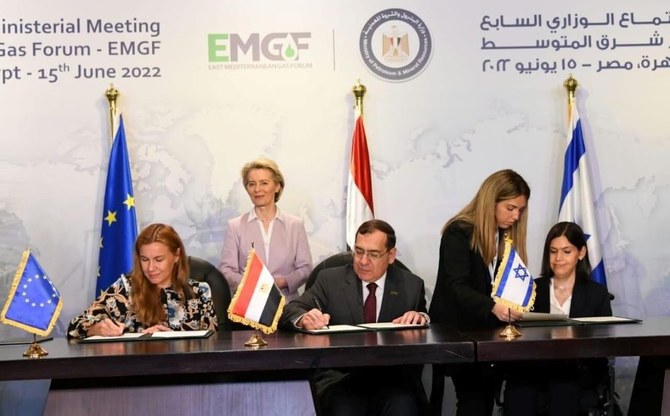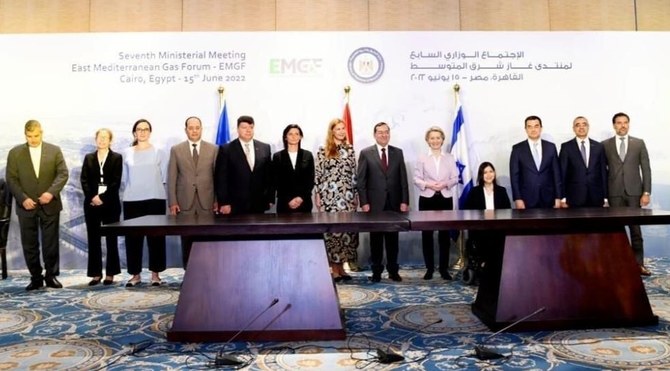CAIRO: Egyptian Minister of Petroleum and Mineral Resources Tarek El Molla, Israeli Minister of Energy Karine Elharrar and EU Commissioner for Energy and Climate Kadri Simson on Wednesday signed a tripartite memorandum of understanding on cooperation in the field of trade, transport and export of natural gas between Egypt, Israel and the EU under the umbrella of the East Mediterranean Gas Forum.
The Egyptian minister stated that the signing represents a “very important step” that can be built upon to achieve further cooperation between the forum’s member states, while the Israeli minister referred to the memorandum as “an important message for the success of cooperation under the umbrella of the forum, which confirms its pivotal role in securing part of energy supplies to Europe.” She added that the “fruitful cooperation enables optimal exploitation of the region’s potential and supports the role of Egypt and Israel as important players in the gas market.”
Simson likewise expressed her happiness at attending this signing, which, she said, “represents an opportunity for everyone to cooperate, especially since the signing of the memorandum comes at a difficult time for the European Union, which is looking to secure reliable sources of energy supplies in light of the current changes we are witnessing.”
She added that cooperation between the countries would lead to the “implementation of energy projects and the provision of new and balanced energy resources to consumers.”
Ursula von der Leyen, president of the European Commission, emphasized the “importance of clean energy resources and the expansion of the use of hydrogen as the energy of the future,” explaining that the EU is currently cooperating in developing a hydrogen strategy in Egypt, which will be launched at the 2022 UN Climate Change Conference next November.
Under the memorandum of understanding, Egypt will be able to buy some of the gas transported to the EU or other countries through Egyptian infrastructure, while Europe will be supplied with Israeli gas through Egyptian liquefaction stations in Idku and Damietta.
The fuel will be converted to liquified natural gas at processing plants in Egypt before being shipped to the EU.
Egypt already exports small quantities of gas to the EU, and it and Israel are expected to increase production and export in the coming years.
According to Refinitiv Eikon data, Egypt exported 8.9 billion cubic meters of liquefied natural gas last year and 4.7 billion cubic meters in the first five months of 2022, although most of it goes to Asia.





























